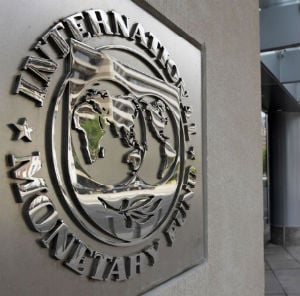IMF warns GCC governments to up deficit reduction measures
The fund said an additional substantial deficit reduction effort is required in the region

Gulf countries need to do more in the medium term to balance their budgets due to lower oil prices, according to the International Monetary Fund.
In a report released yesterday, the fund noted ambitious fiscal consolidation measures, including fee increases and a regional value added tax, being implemented by countries in the Gulf Cooperation Council this year, but said budget balances in several countries “will deteriorate nonetheless, given the sharp drop in oil prices”.
“An additional substantial deficit reduction effort is required over the medium term to preserve fiscal sustainability and, in the GCC countries, to support the exchange rate pegs. Policymakers need to be mindful of emerging signs of liquidity pressures in their financial systems and the risk of deteriorating asset quality,” the IMF said.
Growth in the GCC countries and Algeria is forecast to slow substantially in 2016, as the impact of lower oil prices is felt through tighter fiscal policy, weaker private sector confidence and the tightening of liquidity in the banking systems.
The fund said this year’s growth rate, forecast at 2.1 per cent, would fall well below 2015’s 3.6 per cent, but no oil exporters are expected to fall into recession.
“The fiscal consolidation process will continue and intensify in most countries in 2016. However, due to the further deterioration in oil prices, their fiscal deficits will not, on average, visibly improve this year.”
Budget deficits in the region and Algeria are expected to increase to 13 per cent of GDP this year, down from a surplus of 8.5 per cent in 2013. In addition, the regional deficit will average 7 per cent of GDP by 2021 or a cumulative $900bn during the 2016 to 2021 period, according to the IMF.
“Gross government debt is projected to increase from 13 per cent of GDP last year to about 45 per cent of GDP in 2021. This points to a modest average debt load; however, the debt ratio for some countries is forecast to exceed 100 per cent of GDP by the end of the decade.”
The report warned that oil exporters in the GCC and wider MENA region would need to adjust to a new reality of lower oil prices, suggesting the Gulf countries and Algeria would face an adjustment of 10 to 15 per cent of GDP to balance their books.
“On the revenue side, the GCC countries have room to raise receipts in all areas, from both indirect taxes (VAT, property) and direct taxes (personal and corporate income
taxes).”
The IMF argued the current plans for a 5 per cent VAT rate in the GCC would raise about 1.5 per cent of GDP in the region and increasing public investment efficiency could save another 2 per cent.
“In the GCC region and Algeria, non-oil GDP growth is expected to average only one-half of the recent trend (3.5 per cent during 2017–21, compared with 6.5 per cent during 2000–15), as headwinds from lower oil prices will persist and fiscal consolidation will need to continue for many years,” the fund warned.
